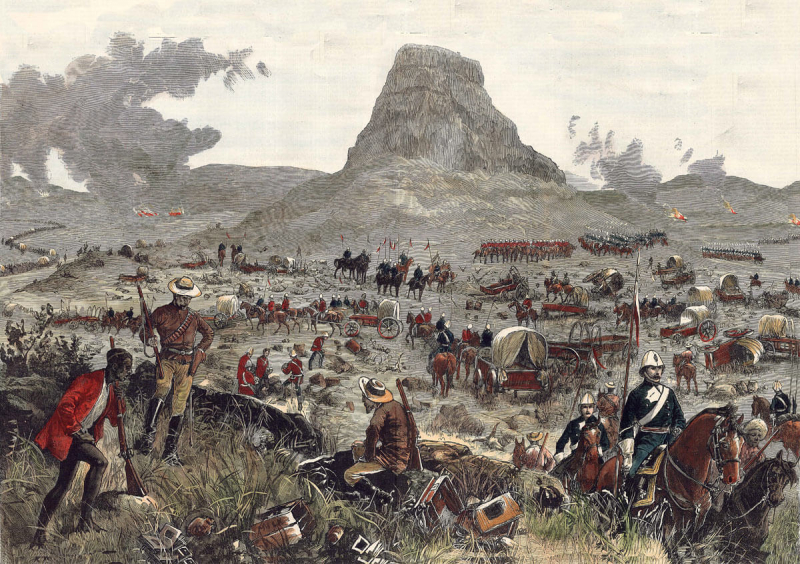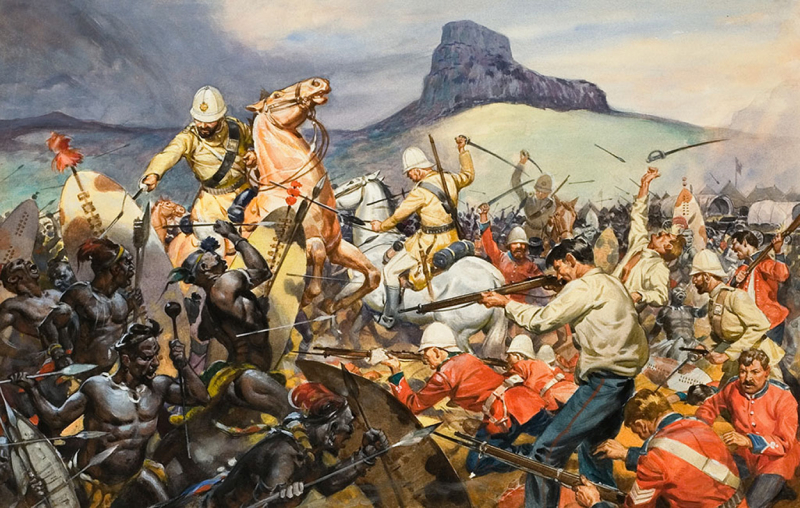Battle Of Isandlwana
The Anglo-Zulu War, a significant warfare involving the Zulu kingdom and Great Britain in the southeast of South Africa, began with the Battle of Isandlwana. Despite having a clear technological advantage over the native army, the British soldiers lost the battle on January 22, 1879, and it would go down as one of the deadliest British defeats.
The Zulu army outnumbered the British forces, who were armed with rocket launchers and cutting-edge breech loading rifles in contrast to their traditional melee weaponry like pikes and spears. This caused the British forces to be caught off guard. Lord Chelmsford, who led the attack, greatly overestimated their resolve to resist, and by day's end, a substantial portion of the British force had been wiped off.
Although the Zulus were ultimately vanquished after a six-month campaign, the battle at Isandlwana is still seen as a significant British defeat in colonial-era Africa. It was the opening combat of the Anglo-Zulu war. It was an element of broader British initiatives to unite South Africa in the area, thus undermining the independence of several, ethnically varied African states like Zululand.
Date: 22 January 1879
Location: Isandlwana, KwaZulu Natal
Result: Zulu victory
- First British invasion attempt defeated












